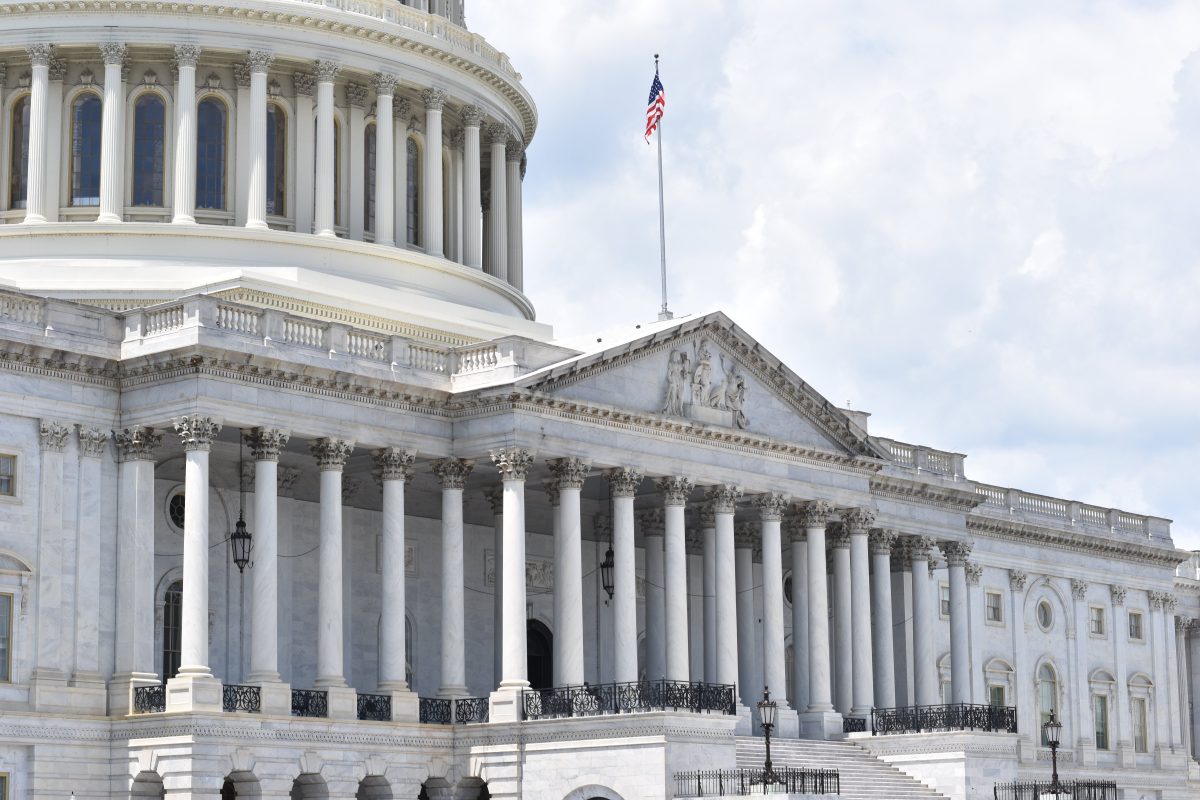Mike Johnson was elected the Speaker of the House on October 25, 2023, after the House of Representatives was speaker-less for a chaotic three weeks. The former speaker, California Republican Kevin McCarthy, was ousted from his position on Oct. 3, 2023. This motion was led by Republican Congressman Matt Gaetz, and won in a 216 to 210 vote. The removal was carried out in the wake of McCarthy compromising with House Democrats on government funding allocations to avoid a government shutdown, which occurs when Congress doesn’t pass the 12 annual appropriation bills. Gaetz and other hard-right conservatives heavily opposed McCarthy compromising with democrats. This explains why, after three failed GOP nominations, the representative to finally win the speaker election was Louisiana’s extremist right Mike Johnson.
To understand the significance of this, the Speaker of the House’s role must be understood.
Primarily, the Speaker of the House is the second in succession to the presidential office, after the Vice President. If Joe Biden and Kamala Harris were unable to carry out the presidential duties, Johnson would become the President of the United States.
Beyond this, The Conversation states that the speaker carries out three main roles.
First, the speaker oversees everything for the House, including accounting and procurement. This means that the speaker, respectively, tracks the house’s financial transactions and sources/obtains goods and services.
Second, they are the “visible and authoritative spokesperson for the majority party in the House”. Since the Republicans are the majority party in this term, the speaker had to be Republican. Speakers communicate the legislative agenda and action to Washington officials and the public. Further, the speaker oversees House committee assignments and works with the House Rules Committee, a powerful committee which decides the rules under which bills are presented on the House floor. By working with this committee, the speaker has control in structuring floor debates on bills.
This leads to the speaker’s last role, which is directing floor business and navigating legislative rules. This gives the speaker the power to structure House debates, which grants them the ability to “advantage their legislative priority”. This is because the House Rules Committee, which the speaker works with, has the power to call for bills to be voted on quickly, limit the debate on a bill, or prohibit amendments to a bill. Although these rules are necessary to control the large 435 person legislative body, they also serve as a tool to push forward the speaker’s preferred legislation.
In understanding that the speaker has influence over the floor time and prioritization of legislation, it is important to then know who Mike Johnson is and what legislation he has, and will, support.
51 year old Johnson has only been serving as Louisiana’s representative since 2017. During his time, he has supported farright legislation. For example, he co-sponsored legislation that attempted to make it a crime to provide gender-affirming services to people under 18, and created the Stop the Sexualization of Children Act of 2022, which prohibits the use of federal funds to support any sexually-oriented program or literature for those 10 and younger. Further, he voted against a bill which aimed to legally recognize same-sex marriage. And to add to this list, Johnson has consistently voted against legal abortion and as a legal counsel in 2010 wrote a letter fighting to shut down a Louisiana abortion clinic, according to NBC.
Johnson has had a hard-right track record with other legislation, too. He voted for the amendment to cut off the U.S. Military assistance for Ukraine. Johnson has also voted against other important legislation: the infrastructure law, the reauthorization of the Violence Against Women Act, a new gun law, and the establishment of a January 6 independent commission.
The January 6th Committee investigated the insurrection of the capitol that occurred when Trump lost the presidential seat. More than just being against this committee, Johnson also worked to keep Trump in power after he lost the 2020 election. He baselessly argued that new voting procedures that were created in the wake of COVID-19 were unconstitutional, and voted to overturn the election results. The New York Times cited that Johnson was “the most important architect of the Electoral College objections”.
In general, the removal of McCarthy and nomination of Johnson paints an important picture about the state of our country. It is important to note that the removal of a speaker is very rare. McCarthy’s ousting was a first in U.S. history; he is the first representative to be removed through a full House vote in the middle of a congressional term. Everyone has heard that America is deeply polarized, but this move shows just how far the American government is getting from any semblance of bipartisanship. This is not the first era of political division and unrest, but never before has a speaker been ousted. Even worse, McCarthy was removed by far-rightists because of one action of bipartisan work in order to keep a functional government. Overall, McCarthy is very Republican, shown through his support in right legislation and Trump. One compromise with Democrats was enough for Gaetz and extreme-rightists to oust McCarthy and elect a representative against finding any sort of middle ground. The Conversation illustrates this partisan phenomena by writing that in today’s world, “Speakers are often criticized as too partisan and too powerful, trampling minority party interests. But this is the nature of the job in today’s Washington.” Political parties in our government have become more concerned with fighting the other side than protecting order, civility, and agreement.
Soon, Johnson will have to work with democratic Senate Majority Leader Chuck Shumer to avoid a government shutdown. Shumer exclaimed, “The only way to avoid a shutdown, to pass a supplemental to do things for the American people, is bipartisan. And I hope and look forward to working with him in a bipartisan way. I hope he will”. Although Shumer has taken on this attitude, it seems unlikely Johnson will adapt it, as he has always stayed strongly conservative and the act of bipartisanship is what got the last speaker removed. The hope is, though, that Johnson will work to avoid a government shutdown, and save the Congress from more chaos.









